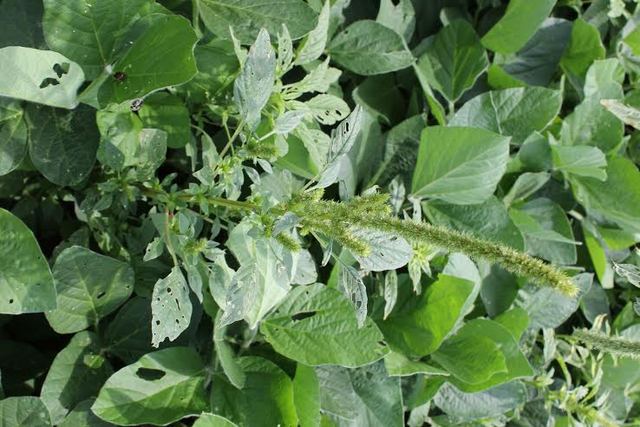| ||||||||||
Dr. Ronald P. Rogers CHIROPRACTOR Support for your body's natural healing capabilities 270-384-5554 Click here for details 


Columbia Gas Dept. GAS LEAK or GAS SMELL Contact Numbers 24 hrs/ 365 days 270-384-2006 or 9-1-1 Call before you dig Visit ColumbiaMagazine's Directory of Churches Addresses, times, phone numbers and more for churches in Adair County Find Great Stuff in ColumbiaMagazine's Classified Ads Antiques, Help Wanted, Autos, Real Estate, Legal Notices, More... 

|
Troublesome weed, Palmer Amaranth, shows up in Adair Co., KY Plant's presence can reduce yields of soybeans as much as 79% Click on headline for story with photo(s) Nick Roy, Adair Co. Agent for Agriculture and Natural Resources Palmer Amaranth is a troublesome weed that has been in western Kentucky for several years and as of this week, its presence has been confirmed in Adair County. Palmer Amaranth is resistant to glyphosate and can pose major problems in soybean fields. A warm season annual, individual Palmer Amaranth plants can produce up to a half a million new seeds when not faced with competition. Palmer Amaranth can grow up to 2-3 inches per day reaching a height of 6 feet or more. Higher populations of this weed has been found to reduce yield in soybeans by as high as 79%. Palmer Amaranth can be difficult to identify as it's characteristic are similar to other pigweed species. Some key features of Palmer Amaranth that can be used to tell it apart from other pigweed species include:
If you find plants that you suspect are Palmar Amaranth, contact the Adair County Cooperative Extension Service at (270) 384-2317 or email multiple pictures of the plant to nick.roy@uky.edu. Always carefully read and follow label directions when using pesticides. Mentions of trade names are for educational purposes only. Generic formulations containing equivalent active ingredients may be available. Educational programs of the University of Kentucky Cooperative Extension Service serve all people regardless of race, color, age, sex, religion, disability or national origin. - Nick Roy This story was posted on 2014-06-27 15:36:51
Printable: this page is now automatically formatted for printing.
Have comments or corrections for this story? Use our contact form and let us know.
More articles from topic News:
Driven will sing at Egypt CC on June 29 Grand Opening, Chamber Ribbon Cutting for Farm 2 Furniture Murder of Attorney Mark Stanziano: Links to Latest Coverage 2014 Adair Co. Fair: Links to Pageant Forms Murder of Attorney Mark Stanziano: business neighbor remembers Columbia Attorney Mark Stanziano murdered in Somerset Supt. Rowe: Columbia 4th of July Flags go up Wednesday, July 2, 2014 John (Bam) Carney: The Fourth of July All 7 Columbia area counties report lower Unemployment County jobless rates down in 103 counties in May 2014 View even more articles in topic News |


|
||||||||
|
| ||||||||||
|
Quick Links to Popular Features
Looking for a story or picture? Try our Photo Archive or our Stories Archive for all the information that's appeared on ColumbiaMagazine.com. | ||||||||||
|
Contact us: Columbia Magazine and columbiamagazine.com are published by Linda Waggener and Pen Waggener, PO Box 906, Columbia, KY 42728. Please use our contact page, or send questions about technical issues with this site to webmaster@columbiamagazine.com. All logos and trademarks used on this site are property of their respective owners. All comments remain the property and responsibility of their posters, all articles and photos remain the property of their creators, and all the rest is copyright 1995-Present by Columbia Magazine. Privacy policy: use of this site requires no sharing of information. Voluntarily shared information may be published and made available to the public on this site and/or stored electronically. Anonymous submissions will be subject to additional verification. Cookies are not required to use our site. However, if you have cookies enabled in your web browser, some of our advertisers may use cookies for interest-based advertising across multiple domains. For more information about third-party advertising, visit the NAI web privacy site.
| ||||||||||





















































